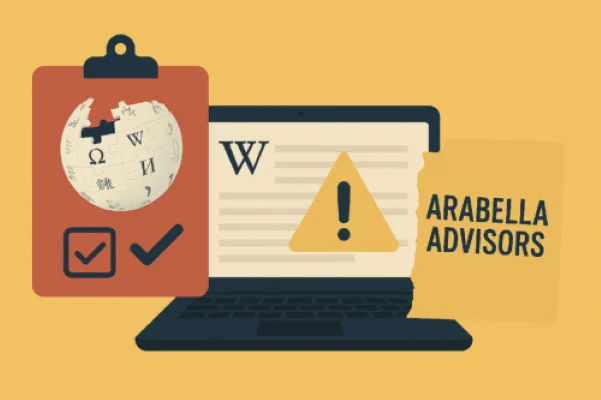
Wikipedia Page Creation Cost – What You Need to Know Before You Start
September 25, 2024Creating a Wikipedia page can be a game-changer for enhancing your online presence, boosting credibility, and gaining recognition. However, the process isn’t as straightforward as it seems. Wikipedia operates with a strict set of rules, from notability requirements to proper sourcing and a neutral tone. These guidelines make it challenging for individuals and businesses to successfully create and maintain a page. This is where hiring a Wikipedia expert becomes crucial.
Choosing the right Wikipedia service is not just about finding someone who can write well but it’s about finding a professional who understands Wikipedia’s unique policies, editorial community, and the intricacies involved in ensuring your page remains live. With so many people and agencies claiming to offer Wikipedia page creation services, it’s essential to know what to look for in an expert who truly understands the platform.
In this article, we’ll guide you on how to choose the right expert for your Wikipedia page by highlighting the key factors to consider when making your selection. By following these guidelines, you can avoid common pitfalls and ensure your Wikipedia page is created correctly and stays live without the risk of deletion or other issues.
1. Proven Track Record of Success
The first and most important thing to look for is an expert with a proven track record of successfully creating and maintaining Wikipedia pages. Ask for examples of pages they have worked on, particularly those that are still live and have not been flagged or deleted. This will give you confidence that the expert understands Wikipedia’s guidelines and has a history of delivering results.
Reputable experts often showcase their past projects or can provide client references. A long-standing history of successful pages indicates the expert knows how to navigate Wikipedia’s complexities and has developed strategies that consistently work.
2. In-Depth Knowledge of Wikipedia’s Guidelines
Wikipedia is governed by a detailed set of rules, from notability requirements to citation guidelines and neutrality standards. The right expert should have a deep understanding of these guidelines and be able to explain them clearly to you. Be wary of anyone who claims they can guarantee a page will be approved without discussing the requirements or explaining the processes they will follow to ensure compliance.
The expert should also be up to date with any changes in Wikipedia’s policies, as the platform is continuously evolving. This expertise ensures that your page won’t be at risk due to outdated practices or a lack of understanding of the latest rules.
3. Transparency About the Process
A trustworthy Wikipedia expert will be transparent about their process, from the initial notability assessment to the final page submission. They should explain each step they will take, including how they plan to gather sources, structure the content, and ensure compliance with Wikipedia’s guidelines. This level of openness is essential, as it shows the expert is confident in their approach and understands the importance of keeping you informed throughout the process.
Additionally, a good expert will discuss the potential risks involved in creating a Wikipedia page, including the fact that no one can guarantee permanent approval, as Wikipedia’s editors have the final say. Avoid anyone who promises 100% success without acknowledging the possibility of challenges.
4. No Guarantees of Permanent Approval
While a skilled expert can significantly increase the chances of your page being approved, they should never guarantee permanent approval. Wikipedia operates as an open-source platform, meaning anyone can edit or challenge a page at any time. A genuine professional will acknowledge this fact and explain how they can help mitigate risks, such as by properly citing sources and maintaining a neutral tone, but they won’t make unrealistic promises.
The right expert will set reasonable expectations about what they can and cannot control. Be cautious of anyone who offers guarantees that sound too good to be true, such as promising that your page will never be deleted or flagged.
5. Experience in Your Industry or Niche
It’s also beneficial to find an expert who has experience working within your specific industry or niche. Different industries have unique notability standards on Wikipedia, and experts who are familiar with your field will know how to tailor the content to meet those requirements. For instance, creating a Wikipedia page for a tech entrepreneur may require different sourcing and notability standards than creating a page for a public figure or a nonprofit organization.
Ask potential experts if they have worked on similar projects in the past and if they understand the nuances of your industry’s presence on Wikipedia. This will ensure that the expert can tailor their approach to best suit your needs.
6. Clear and Fair Pricing Structure
Lastly, the right Wikipedia expert should offer a transparent and fair pricing structure. Creating a Wikipedia page is a complex process that requires time and effort, so be prepared for a reasonable fee. However, avoid experts who charge exorbitant rates without justifying their costs, or those who offer suspiciously low prices, as this can indicate a lack of expertise or poor-quality services.
Before committing, ask for a breakdown of the costs involved and what you’ll be paying for at each stage of the process. A reputable expert will be upfront about their fees and will offer a clear contract outlining the terms of the service.
In conclusion, selecting the right Wikipedia expert requires careful consideration of their experience, transparency, industry knowledge, and pricing. With the right professional, you’ll not only increase the likelihood of getting your Wikipedia page published but also ensure it remains compliant with Wikipedia’s evolving guidelines, safeguarding it for the long term. Take your time to evaluate potential experts and choose someone who meets all these criteria to give your Wikipedia page the best chance of success.




